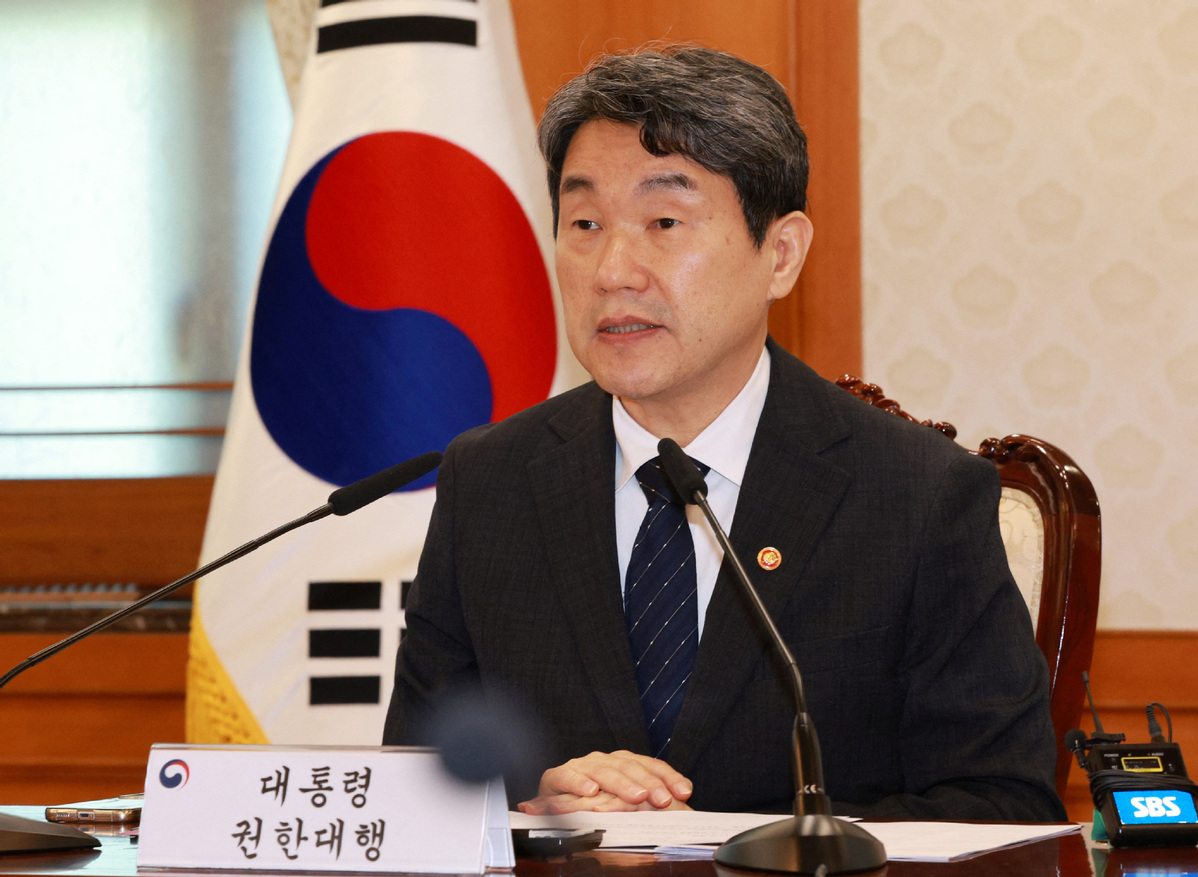South Korea gets another acting leader
Deputy PM steps in as predecessor resigns to join presidential contest


South Korean Deputy Prime Minister Lee Ju-ho has become the country's third acting president in five months as former prime minister Han Duck-soo announced his presidential bid on Friday.
Han, who took over as acting president after former president Yoon Suk-yeol was impeached in December, resigned on Thursday. He declared his candidacy for the June 3 presidential election on Friday morning.
"I decided to find what I could do for the future of the Republic of Korea, which I love, and for all of us," Han said, citing challenges such as global trade tensions and "great" domestic turmoil.
He pledged that if elected, he would complete constitutional amendments in two years, and then hold new general and presidential elections under the revised constitution in the third year before stepping down.
Following Han's resignation, the person set to replace him — finance minister Choi Sang-mok — also stepped down. He did so as the opposition-led parliament was set to vote on his impeachment.
Ranking fourth in the Cabinet's hierarchy, Lee, deputy prime minister for social affairs and education minister, abruptly took the role of acting president for the first time and pledged a stable government ahead of the election.
"Never in the history of South Korea or even Northeast Asia do you have a case of an 'acting acting acting' president," Lam Peng Er, head of the Korea Centre at the National University of Singapore, told China Daily.
Tensions have been rising rapidly among South Korean political parties after Yoon's martial law decree last year, which has resulted in the politics of vendetta and revenge with no compromises, Lam said.
"The South Korean people really need to come together and think carefully of what kind of political system they want."
Adding to the precarity, a court ruling on Thursday cast doubts on the liberal election front-runner Lee Jae-myung's eligibility to run for the presidency.
The Supreme Court overturned an earlier ruling that had cleared Lee, saying he had violated election law by publicly making "false statements" during his 2022 presidential bid.
It sent the case back to the appeals court and ordered it to issue a new sentence, which could bar him from running for office for up to 10 years.
Lam said the Supreme Court "is virtually upholding" the original decision by the Seoul Central District Court, which gave Lee a suspended one-year prison sentence in November.
The Seoul High Court overturned that decision in March.
Negative effect
While the Supreme Court's ruling has a negative effect on Lee's presidential bid, Lam said the final outcome is up in the air considering the different scenarios of the election law violation case and the fact that Lee is facing multiple criminal trials.
Shin Yul, a professor of political science at Myongji University in Seoul, told Reuters that the ruling marked a significant setback to Lee and the Democratic Party.
The Supreme Court's decision effectively amounted to a guilty verdict, which could sway moderate voters who make up roughly 10 percent of the total, he said.
The Democratic Party condemned the ruling and proposed a bill to revise the Criminal Procedure Act to stop the trial of any defendant who wins a presidential election.
The ruling People Power Party criticized the proposal as a "legislative coup" that aimed to shield Lee, state broadcaster KBS reported.
"The polarization of South Korean politics will continue beyond June," Lam said, adding the country is in the eye of a political hurricane as it faces both internal and external crises amid a string of temporary leadership changes and pressure from the United States' tariff hikes.
Agencies contributed to this story.
kelly@chinadailyapac.com

































